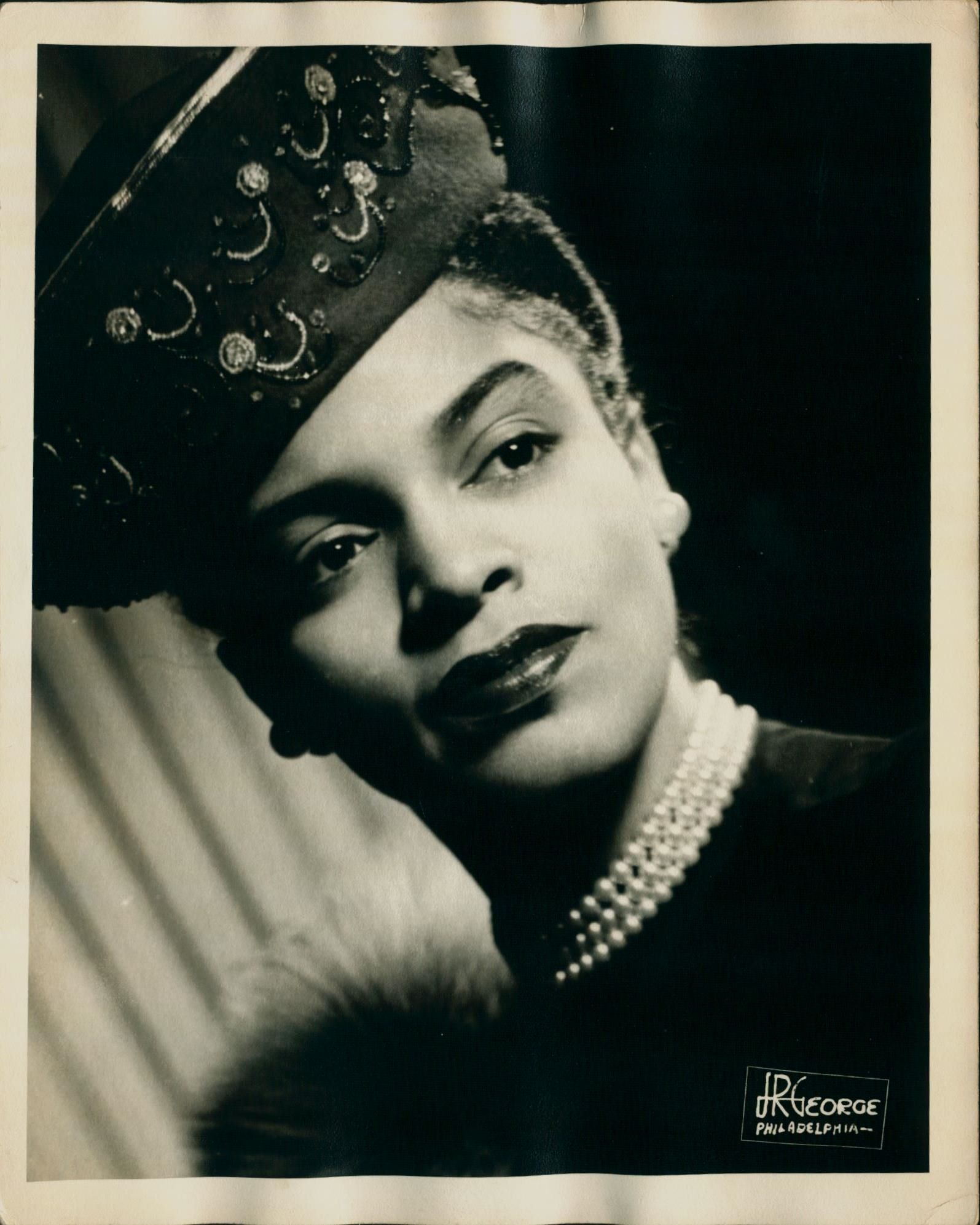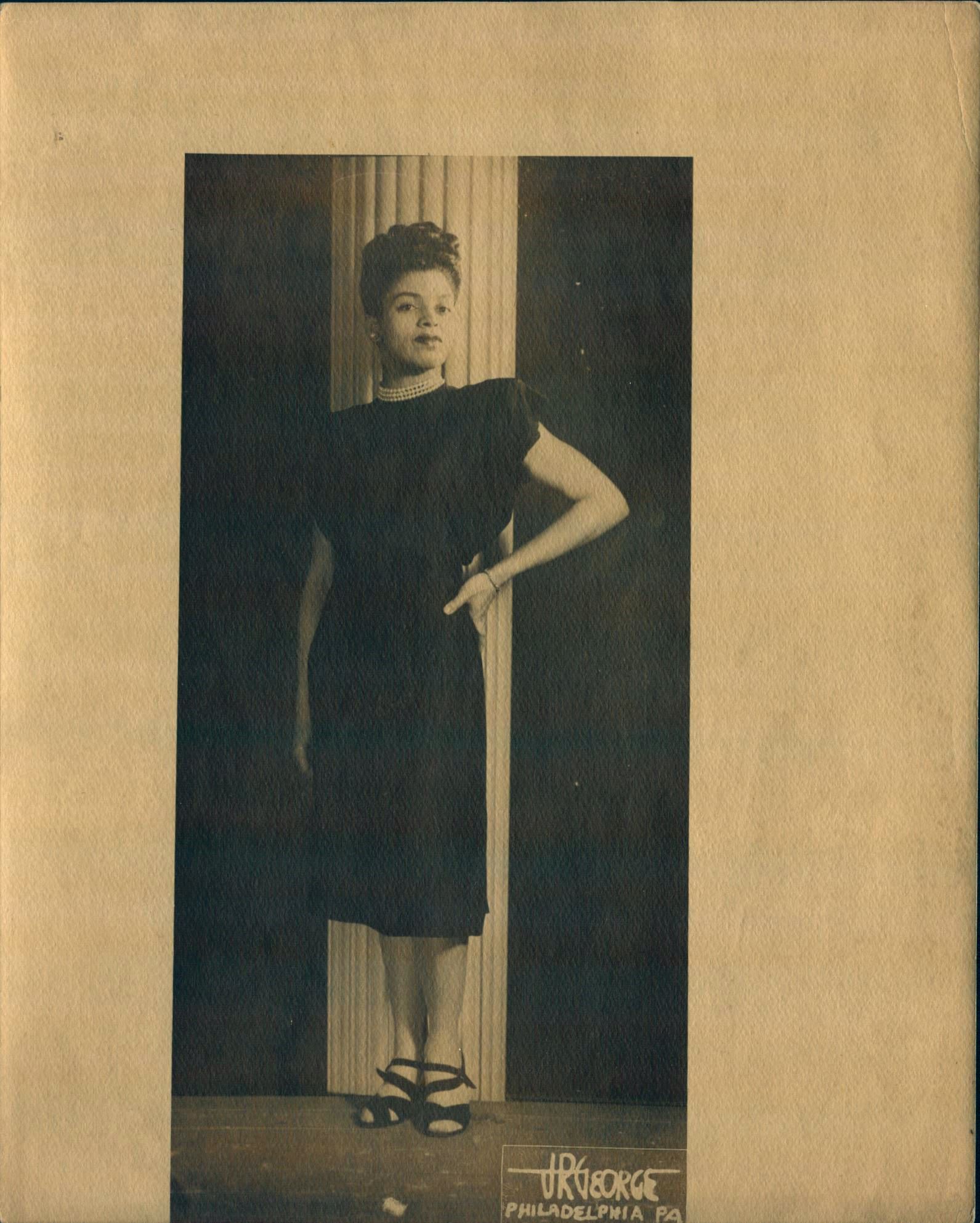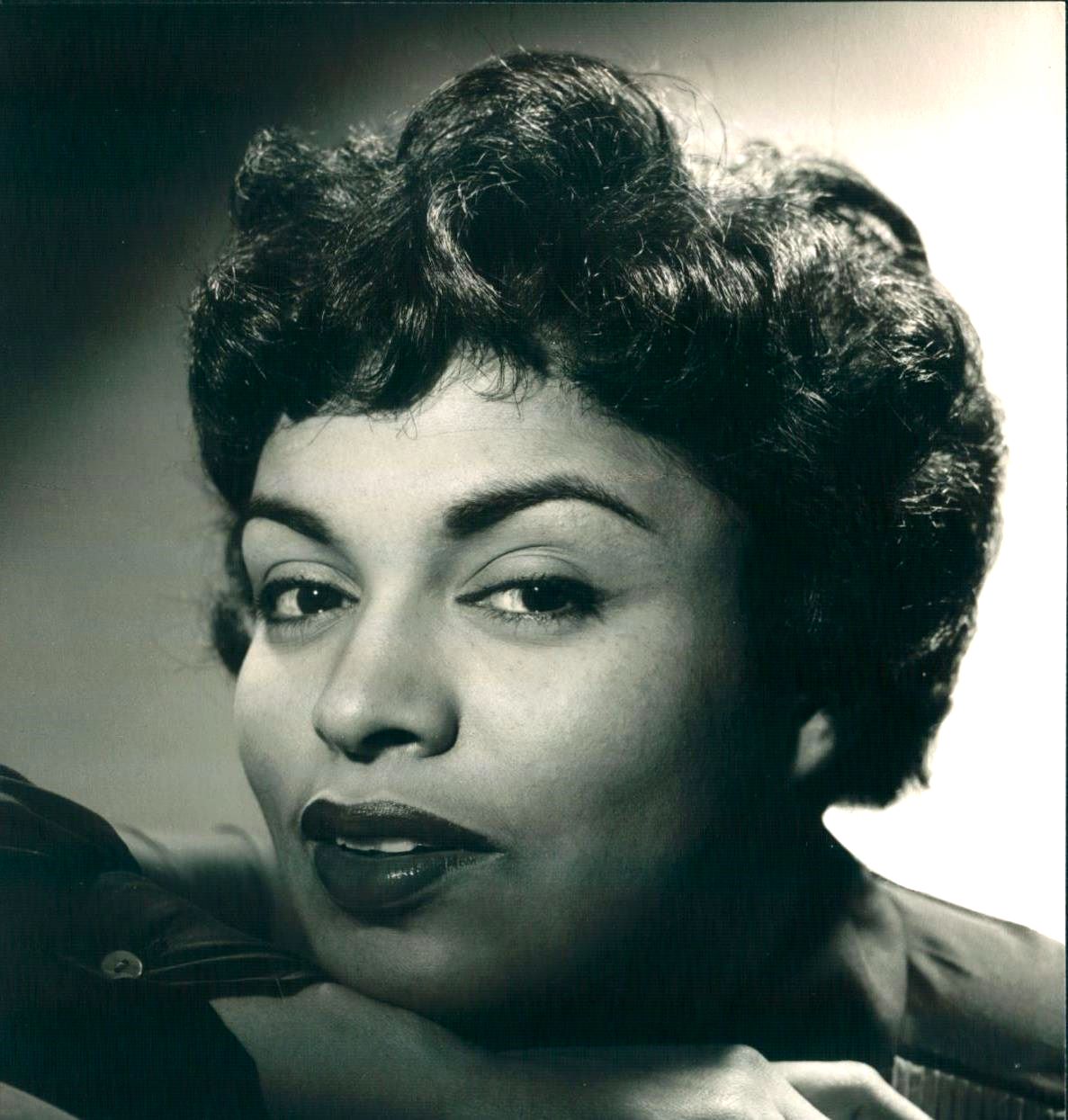Celebrating Black History: Muriel Smith (Voice ’46)

 Mezzo-soprano Muriel Burrell Smith (1923–85) was a celebrated African American star of opera, musical theater, and film in the 1940s and ’50s. Born in New York City, much of her formative years remain unknown, but she came into public consciousness in 1937 after performing as a guest on the popular radio series Major Bowes’ Amateur Hour at age 14. Two years later, she was singing at a cocktail party, and purportedly, one of the guests, Curtis vocal coach Elizabeth Westmoreland, arranged for her to have an audition at the Curtis Institute of Music, where she received a full scholarship, studying with Elisabeth Schumann. Ms. Smith entered the school in September 1940 and graduated in the spring of 1946 with a degree in voice. From there, she went on to become one of the earliest successful crossover artists in the United States and a well-known Hollywood “ghost singer” (a vocalist whose singing was pre-recorded for use in films) in films such as 1953’s Moulin Rouge, 1956’s The Battle of the River Plate, and 1958’s romantic classic, South Pacific, singing the role of Bloody Mary.
Mezzo-soprano Muriel Burrell Smith (1923–85) was a celebrated African American star of opera, musical theater, and film in the 1940s and ’50s. Born in New York City, much of her formative years remain unknown, but she came into public consciousness in 1937 after performing as a guest on the popular radio series Major Bowes’ Amateur Hour at age 14. Two years later, she was singing at a cocktail party, and purportedly, one of the guests, Curtis vocal coach Elizabeth Westmoreland, arranged for her to have an audition at the Curtis Institute of Music, where she received a full scholarship, studying with Elisabeth Schumann. Ms. Smith entered the school in September 1940 and graduated in the spring of 1946 with a degree in voice. From there, she went on to become one of the earliest successful crossover artists in the United States and a well-known Hollywood “ghost singer” (a vocalist whose singing was pre-recorded for use in films) in films such as 1953’s Moulin Rouge, 1956’s The Battle of the River Plate, and 1958’s romantic classic, South Pacific, singing the role of Bloody Mary.
 In 1943, Ms. Smith made her Broadway debut in the title role of Carmen Jones, a modernized twist on the opera Carmen, with music by Georges Bizet (orchestrated by Robert Russell Bennett) and lyrics and book by Oscar Hammerstein II, featuring an all-African American cast of 115. The show ran for fourteen months, went on a tour, and returned for revivals twice. She starred as Delphine with baritone William Veasey in Theodore Ward’s play Our Lan at the Royale Theatre in 1947, and later that year in a fully orchestrated staged production of Marc Blitzstein’s opera, The Cradle Will Rock, as Ella Hammer, with Curtis graduated Leonard Bernstein (Conducting ’41) at the podium. She rounded out the season performing with the American Negro Theatre (ANT) (co-founded by playwright Abram Hill and actor Frederick O’Neal).
In 1943, Ms. Smith made her Broadway debut in the title role of Carmen Jones, a modernized twist on the opera Carmen, with music by Georges Bizet (orchestrated by Robert Russell Bennett) and lyrics and book by Oscar Hammerstein II, featuring an all-African American cast of 115. The show ran for fourteen months, went on a tour, and returned for revivals twice. She starred as Delphine with baritone William Veasey in Theodore Ward’s play Our Lan at the Royale Theatre in 1947, and later that year in a fully orchestrated staged production of Marc Blitzstein’s opera, The Cradle Will Rock, as Ella Hammer, with Curtis graduated Leonard Bernstein (Conducting ’41) at the podium. She rounded out the season performing with the American Negro Theatre (ANT) (co-founded by playwright Abram Hill and actor Frederick O’Neal).
 Ms. Smith moved to London in 1949, where she spent a good portion of her career, after finding it increasingly difficult to find steady work in the U.S. because she was Black. Ms. Smith once said her race “figured sub rosa throughout my career. I couldn’t do anything I wanted to do without tackling the race question.”1 In the U.K., she found great success, appearing in two Cecil Landeau revues (Sauce Tartare and Sauce Piquante) at the Cambridge Theatre, and starring as Bloody Mary in South Pacific and Lady Thiang in The King and I in the West End. She became one of Britain’s most famous theatrical performers and recitalists throughout the 1950s and was well-known for her 1953 #3 hit single, “Hold Me, Thrill Me, Kiss Me,” later covered by Mel Carter and Gloria Estefan.
Ms. Smith moved to London in 1949, where she spent a good portion of her career, after finding it increasingly difficult to find steady work in the U.S. because she was Black. Ms. Smith once said her race “figured sub rosa throughout my career. I couldn’t do anything I wanted to do without tackling the race question.”1 In the U.K., she found great success, appearing in two Cecil Landeau revues (Sauce Tartare and Sauce Piquante) at the Cambridge Theatre, and starring as Bloody Mary in South Pacific and Lady Thiang in The King and I in the West End. She became one of Britain’s most famous theatrical performers and recitalists throughout the 1950s and was well-known for her 1953 #3 hit single, “Hold Me, Thrill Me, Kiss Me,” later covered by Mel Carter and Gloria Estefan.
 After turning down the role of Bess in the 1956 Samuel Goldwyn film version of the Gershwins’ Porgy and Bess, Ms. Smith played the part of the legendary black educator, Mary McLeod Bethune, in the film The Crowning Experience, one of the first Hollywood picture with a multiracial cast of equal billing, known for assuaging racial tension in Atlanta and helping to integrate theaters in the city. In her later years, she was a voice teacher at Virginia Union University, worked for MORAL Re-Armament, and received an arts award in 1984 from The National Council of Negro Women.
After turning down the role of Bess in the 1956 Samuel Goldwyn film version of the Gershwins’ Porgy and Bess, Ms. Smith played the part of the legendary black educator, Mary McLeod Bethune, in the film The Crowning Experience, one of the first Hollywood picture with a multiracial cast of equal billing, known for assuaging racial tension in Atlanta and helping to integrate theaters in the city. In her later years, she was a voice teacher at Virginia Union University, worked for MORAL Re-Armament, and received an arts award in 1984 from The National Council of Negro Women.
Photos taken from the Jane Hill Meyer collection, PPCI-MSS 05. Archives. To view Curtis’s digital collections, please visit Curtis Institute of Music Open Archives and Recitals (CIMOAR). Learn more about Curtis’s library and archives HERE.
1. “Muriel Burrell Smith Dies,” The Washington Post, September 16, 1985.


